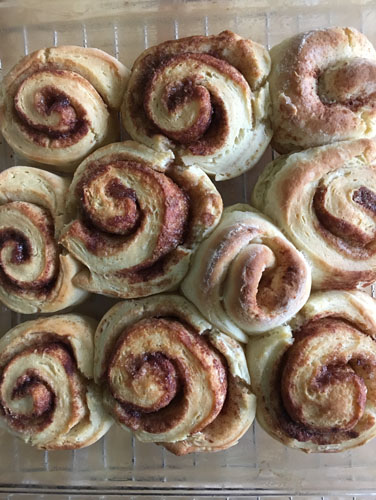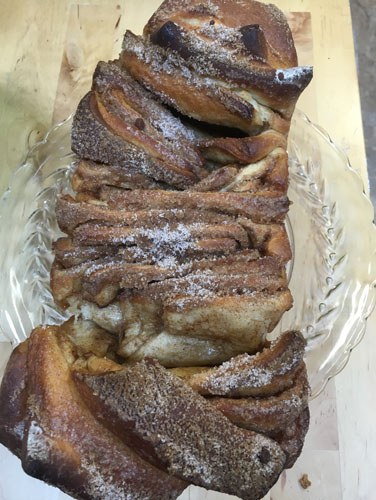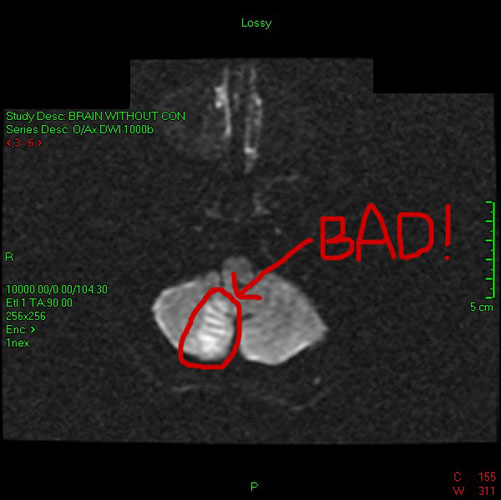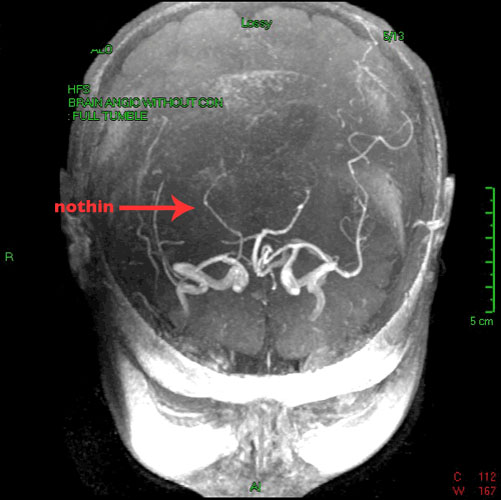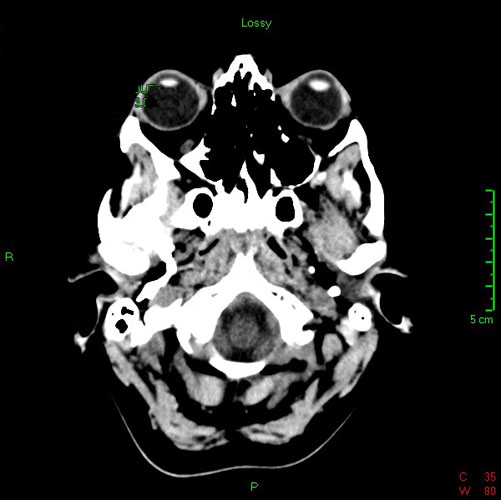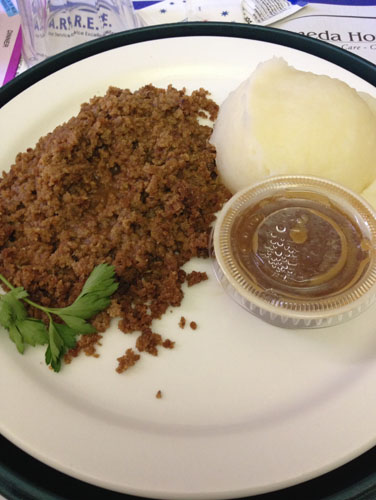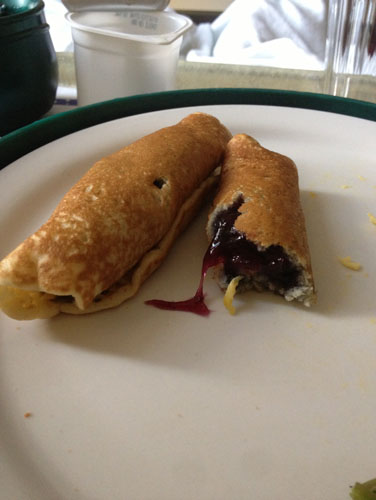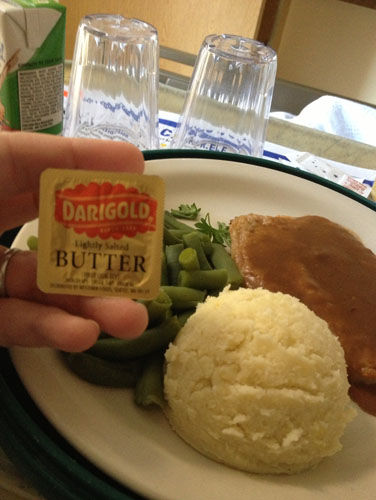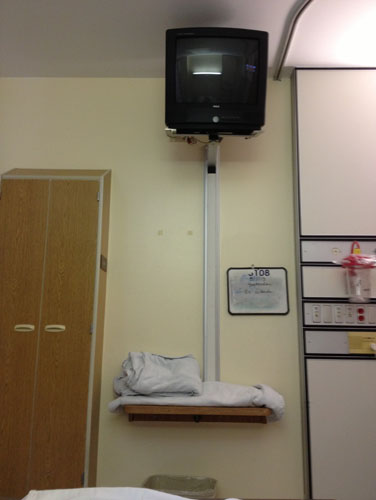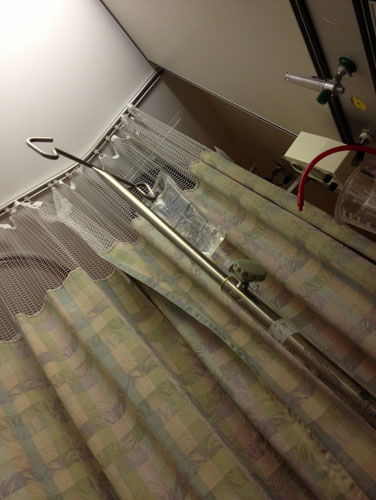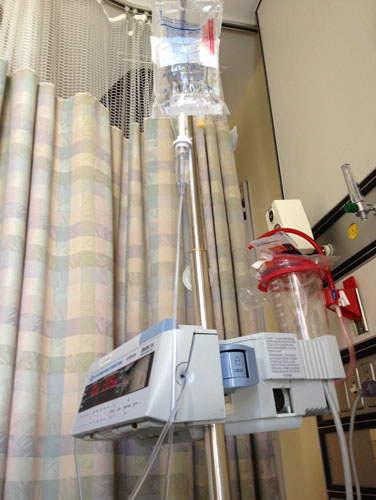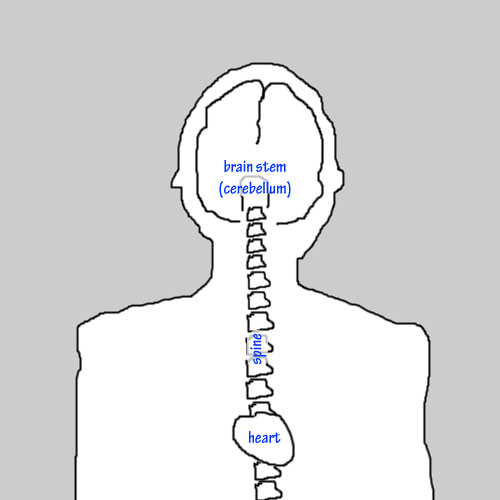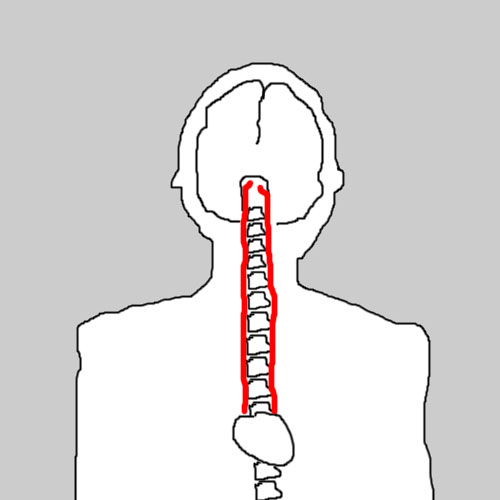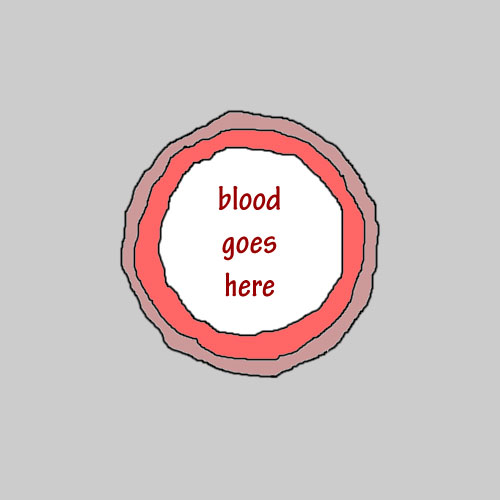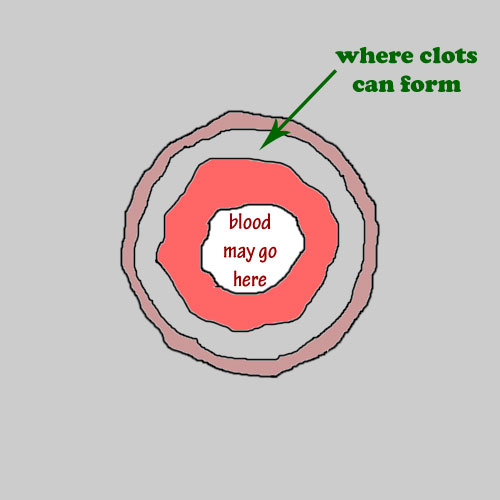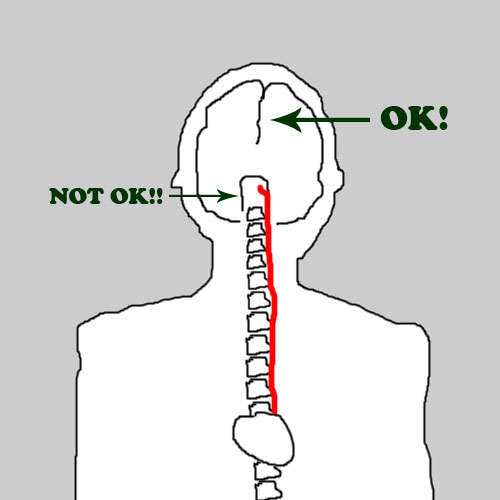Pretty much everybody who knows me knows I'm a big geek about a lot of things. What you may not realize is that I'm a huge geek about self-tracking. I know, that kind of came out of nowhere, but there you have it. I've been tracking things like pain and mood and other body information for YEARS. Actually, holy cow, for DECADES. Since we moved into the Smartphone Age, I moved a lot of that onto my phone, but before all this I kept it all in a spreadsheet, and before that a little notebook with information. I still use a spreadsheet for a lot of things.
Tracking is mostly useful for me to explain things to doctors, who dislike believing their patients, especially female patients, without data. More than once I've had a doctor disbelieve me until I produced a sheaf of data points to prove what I'm saying. That's a sad statement about the state of medicine, but I work with it. If doctors want data, I have data for them.
So these are the technology tools I'm using now to track data about myself:
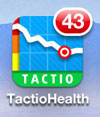
I have this iPhone app, Tactio Health (I use a free version with fewer bells and whistles, but good enough for me), which I use to track my weight, exercise, and a few other things. It would like me to track more things, but that's what I give it. It has been interesting having a little portable weight history with me. I've been using that for a year or so. Until recently I didn't see much value in tracking my blood pressure, but that's been kind of weird since the stroke so I'm tracking that now, too.
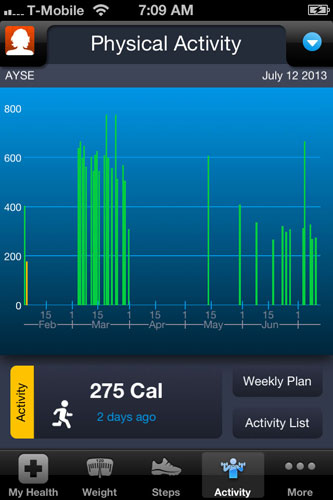
This is the screen where I can record exercise events (the app doesn't directly record activities). You can record an event by time, distance (well, for running), or calories burnt. I track by calories burnt according to my heart rate monitor, to keep things consistent. The big surge on the left is when I did boot camp for a month before we left for Turkey; I got really regular about recording exercise here because it fit with my cooldown routine.
Then there's a big gap while we were in Turkey because I didn't record our walks. Then one lone spike where I went back to boot camp on May 13, which was the day I had my stroke. After that are the blank couple weeks when I wasn't allowed to do any exercise, then you can see spikes for my PT runs (which are actually 50% walks). It's a nice way of keeping track of workouts and comparing the work I do in each one.
I always use a heart rate monitor when I exercise. I do this because I have a heartbeat irregularity -- benign but unpleasant to experience -- that shows up when my heart rate is relatively high. I've also noticed that when I let my heart rate get too high it sort of gets out of control and I feel horrible for a long time, even after I've stopped exercising. So a couple years ago I started using the heart rate monitor to stay in my healthy, safe range.
Since the stroke, I need this feature even more. My blood pressure is all over the place, often much higher than I am used to, and so my heart rate has been harder to control. I'll set out for what feels like a normal low-key practise run and the monitor will start beeping about approaching the danger zone when I wasn't expecting it at all. The point of the PT runs is not to push myself nearly to death, but to work on balance and retain some strength, so the heart rate range indicator has been a huge help. I'm also running v e r y v e r y s l o w. Slow enough that I can actually walk at that pace.
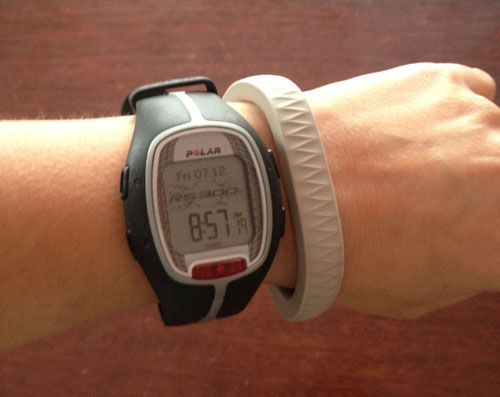
I have a Polar RS300X SD, which is still available. It's shown here on my wrist with the light gray Jawbone Up beside it (more on that in a bit). It has two features I use all the time: lap timing (for tracking intervals), and an alert to let me know I've reached a certain heart rate. It has a lot of other features I don't use, but to get the heart rate alert I had to buy a lot of extra features.
Every now and then I think of upgrading my chest transponder to have bluetooth so it can talk to my phone, but I'm probably fine without that.
The heart rate monitor also talks to our treadmill, a LifeFitness 9100H. We bought the treadmill right after I got out of the hospital after the stroke, and I don't regret it one bit (I had been stalking Craigslist treadmill listings for three months at that point, so I knew exactly what I wanted and what price to pay for it).

Since I'm not allowed to run or walk alone, I do most of my workouts on the treadmill, which has a few good built-in routines, including two that talk to your Polar heart rate monitor. I like being able to set a target heart rate and have the treadmill change the incline to get me there and keep me there. I would like to be able to run outside, but this is working for me for now.
My favourite program is Hill, but on days when the dizziness is bad I stick with a 1% incline and relatively slow speed and just let the work of balancing be my challenge. The treadmill has side arms that I can hold onto when I feel dizzy. I find I bump into the side arms quite a bit, but not as much as at first.
Some people complain about getting bored with treadmills with fewer programs on them, but I find that even when I train outdoors I stick with routes I know rather than mixing it up frequently, and so far I don't find the treadmill boring at all. I listen to In Our Time podcasts and zone out.

The Jawbone Up pedometer (on the right on my wrist) is a recent purchase. They market it like it's not just a pedometer, but it measures my steps, therefore i think of it as a pedometer. It also helps measure my sleep, and has a feature to wake me up at the right part of my sleep cycle. In addition, it vibrates to let me know I've been still for too long (if I haven't walked in 30 minutes). I wear it all the time, even in the shower (which actually is a nice way to keep it clean).
I like it, though apparently I walk very lightly because it hardly records any steps when I walk around the house barefoot. I have a little competition going with myself to see how far I can get before it realizes what I'm doing and records a step. It does great on runs or if I'm wearing shoes, though, and those are the walks I really care about. The data is very useful, as I am trying to make sure I get enough movement in even on days when I am resting.

It has a fancy little iPhone app that I like quite a bit, and can integrate with a number of other apps, like Runkeeper. Sometimes it feels a little simplistic, but I'm using it for a relatively simple purpose.
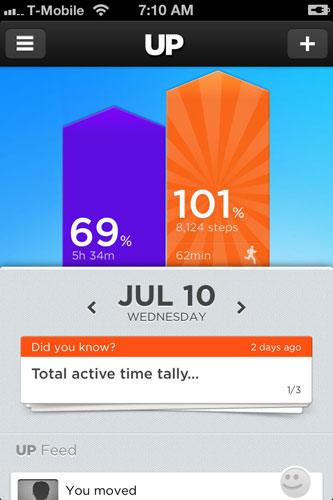
For oversharers, you can have it post all your information on Twitter or Facebook, because we all need to know how much you slept. I like recording my data for myself, but I have no need to share it with the world. On everything I use I turn off or don't activate the sharing parts.
The stuff I've already shown you is perfectly good for working out and tracking it, but since I am me and I need to have more ways of tracking data, I have more apps.
I track my runs off and on (whenever I feel like it) with Runkeeper. It can use GPS to track where you ran and all that. A pretty nice little app if you run outside.
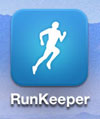
Of course, it works much better now that I've got a phone that knows where it is (my old iPhone always thought I was about 1/2 mile from my actual location, and when I was at home it thought I was in the middle of the Estuary, leading to some really funny driving directions and Runkeeper just not working). I have to enter my workouts on the treadmill manually, but that's OK for me. It's not as useful to me right now as when I was running outside, but I'm sure I'll get there eventually.
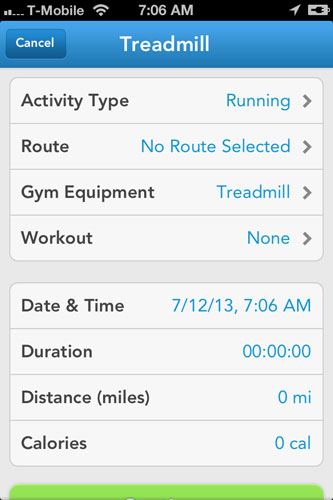
Runkeeper does make some hilarious mistakes, like a walk I took where I let the GPS do its thing and it recorded that I had a total change of elevation of 88ft. It is not physically possible to get up 88ft anywhere in Alameda, except I think there is one high-rise apartment building down by the marina. I get the total elevation thing, but that's just ridiculous for a medium-length walk on a flat sand bar island.
But overall it's a decent piece of software, and there are some free workout plans for it that are pretty good.
I also use C25K Free, which is in theory an app to help a couch potato train to run a 5K race, but in secret is a really just an awesome way to get interval training cues while you work out.
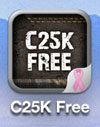
I just restarted the program last week to add some structure to my runs. I had tried using it while running outdoors but it was hard to keep track of it when it was in my pocket, so I'd switched to a podcast with built-in audio cues. Now it's working well for me because it's convenient to just set the iPhone up in the cup holder where I can watch the screen all I want.
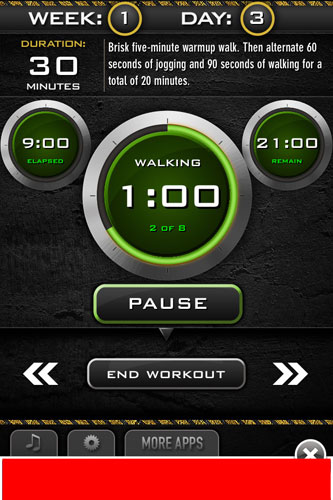
The screen is almost impossible to read in detail while you are running, but it does have some nice information. The only thing that makes me a little crazy about it is the center dial thing, where the line around it -- green when you are in "walk" phase, red in "run" phase -- goes backwards. You'd expect it to start all black, and the line would fill in like a clock, but it starts all green, then the line recedes counterclockwise. It's exactly backwards of what you would expect.
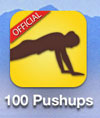
I also have an app for 100 Pushups, which I was doing before the stroke. Regular pushups are now forbidden until at least the end of August when I have my next MRI, so I reset it. I can do wall pushups but I'm strong enough to do 100 of those already. But I do like this app, enough to pay some money for it. When I bought it it was linked off the 100 Pushups site, but apparently there's some drama there.
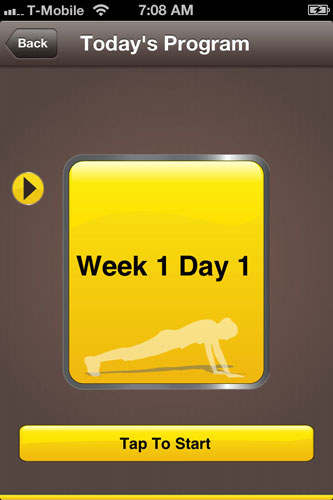
It's a pretty simple setup, just hit the timer and it tells you how many pushups to do. You get breaks between sets. I was up to 40 or so and I'm not in particularly good shape, but if you go slowly and repeat training days, even a super-schlub like me can get pretty good at pushups.
I have a few other exercise apps that I don't use any more, and I have a couple meal-tracking apps that I tried out and didn't care for. I don't need to share what I eat and public shaming is actually the very opposite of the kind of incentive I need to eat well. The Notepad app and regular entries on my spreadsheet are working OK for me.
The other thing I use the phone for is tracking my medications.
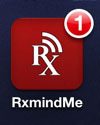
Since the stroke I'm taking a lot of medication for pain and as protectives against seizures or blood clots. I use RxmindMe, yet another iPhone app, to remind me of when those are due. It is about as flexible as it gets while staying simple, and it does a decent job of helping me keep track of what I've taken and when, as long as I remember to enter the information.
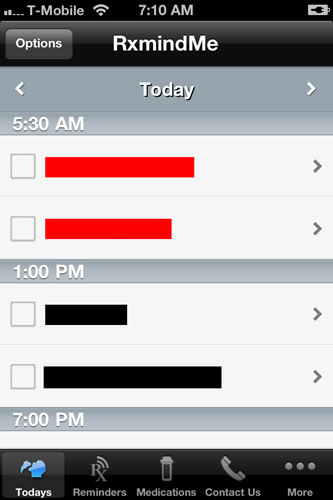
I blocked out my names for the various piles of pills I take, but basically you can enter a medication, then set up a reminder for it. The reminder can be for multiple pills or just for one. I have nicknames for the multi-pill combinations I take, so I use those, but whatever works for you. Every day you get a screen like this with checkboxes for when you've taken the thing. The app keeps track of the time when you checked the box, but if you forgot and go back to check it off, you can also change the time the pill was taken. That's super useful for showing doctors that you are compliant with your medication regimen.
As it turns out, it is also super useful if you just had a stroke and are still learning to cope with being a little more absent-minded.
You can also choose to skip a medication; I do that for some of my "take this as needed at these times" medications.
The app has a nice little database of medications so you don't have to remember how to spell everything. You add a medication, then set up reminders for it. They have a nice selection of reminder types, though last summer I had to do a prednisone taper and every single one of those pills had to be added manually, which was a bit arg, especially since my arm was super swollen.
Anyway, those are my tracking tools. I find that since the stroke I'm spending more time keeping track of my physical state. The exercise apps tend to get used all at once on a particular day, while the pedometer and medication tracking are more ongoing. Maybe one of these days I'll show you my Spreadsheet Of Doom.
